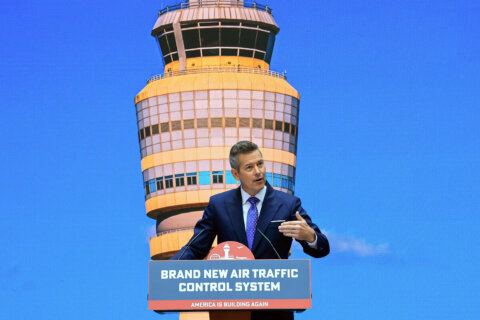WASHINGTON — Metro said it is conducting a “comprehensive” review of possible radio communication issues after two Metro riders apparently got fed up with a 14-minute wait on a train stopped in a tunnel Tuesday night and exited the train.
The review includes checking radio coverage at the spot near Farragut North where the train was stopped because of a faulty switch, the train cab’s built-in radio and the train operator’s handheld radio which is carried as a backup, Metro spokesman Dan Stessel said.
Metro is also reviewing the train system’s public address data, but Stessel said the details were not yet available since it is an ongoing review.
Regular Red Line riders know cellphone service is spotty at best in that area, but several riders did record video of some of the P.A. announcements that indicated the train was holding.
The train operator could not make announcements while walking back through the packed train to the other end to pull the train back toward Farragut North to get around the switch issue. The train then had to wait even longer when automated indicators showed frustrated riders had opened a door about 14 minutes after the train first stopped, which prompted an announcement to riders to stay on the train and required further safety checks.
While some riders said they thought there should have been more communication, others told WTOP they understood what was going on at the time.
Moving the train after the men left the train for the tunnel could have put the two riders even more at risk. They already risked coming into contact with the electrified third rail simply by getting off, Metro officials said.
A maintenance worker was able to find the men and lead them back to the station, where they argued with Metro staffers and took off before Metro Transit Police arrived.
Many of the riders on the packed train were heading home from the Nationals game or the World Cup of Hockey exhibition at the Verizon Center.
Stessel said the train finally moved again after a total wait in the tunnel of about 40 minutes.
“The reports about communication are being looked into — including interviewing the operator, checking radio functionality and PA data from the train,” Stessel said in an email.
Metro has aimed to improve communication with riders during incidents and delays, but has acknowledged that there is room for improvement.
Separate issues have dogged Metro’s radio communications including a lack of radio discipline, cases where operators simply turned their radios down or off, and failures in some public safety radio systems that have been a focus for the past two years.







